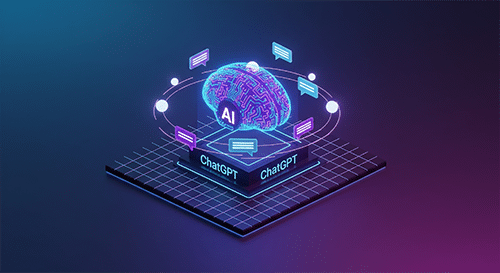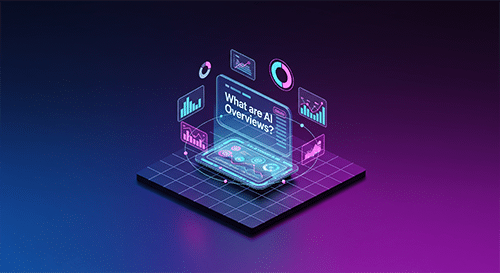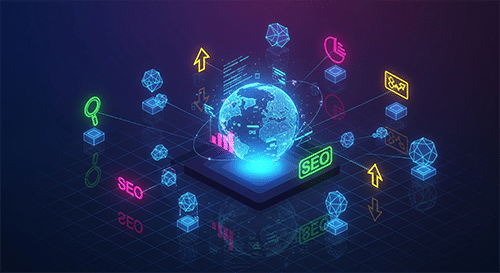ChatGPT SEO encompasses two critical strategies: optimizing your content to appear in ChatGPT’s search responses and leveraging ChatGPT as a tool to enhance your traditional SEO efforts. With ChatGPT Search gaining massive adoption, businesses need both approaches to maintain competitive visibility in AI-powered search.
ChatGPT SEO has two tracks that work together. First, you optimize your content so it is cited and surfaced inside ChatGPT answers. Second, you use ChatGPT to accelerate the classic SEO workflow from research through publishing. Adoption of ChatGPT Search is growing fast, which means businesses need both tracks to keep visibility in AI powered discovery.
- Over 200 million weekly active users across ChatGPT platforms
- ChatGPT Search processes 100+ million queries monthly
- 75% correlation between ChatGPT citations and Bing search results
- Local business queries increased 400% year-over-year
- Integration with Microsoft’s $13+ billion OpenAI partnership
Part 1: How to Rank in ChatGPT Search Results
1Master SEO Fundamentals First
Websites with strong traditional SEO foundations consistently outperform others in ChatGPT citations. Research shows a 75% correlation between ChatGPT Search results and Bing’s top rankings, making traditional SEO optimization your essential starting point.
Core SEO elements that impact ChatGPT visibility:
- Technical SEO: Crawlable URLs, fast loading speeds, mobile optimization
- Content Authority: Comprehensive, well-researched content with clear expertise
- User Experience: Scannable formatting, logical structure, quick answers
- Domain Trust: Backlink profile, citations, and online reputation signals
Essential SEO Audit Tools:
- Screaming Frog SEO Spider: Comprehensive technical SEO auditing
- Semrush Site Audit: Identify and prioritize SEO issues
- Google Search Console: Monitor indexing and search performance
- GTmetrix or PageSpeed Insights: Optimize Core Web Vitals
- Ahrefs Site Explorer: Analyze backlink profile and domain authority
2Optimize for Bing Search Rankings
Due to Microsoft’s strategic partnership with OpenAI, ChatGPT heavily relies on Bing’s search infrastructure. Improving your Bing rankings directly impacts your ChatGPT visibility, though this requires understanding Bing’s unique algorithm preferences.
| Ranking Factor | Bing Priority | Google Priority |
|---|---|---|
| Exact Match Domains | Higher weight | Lower weight |
| Social Media Signals | Significant factor | Minimal factor |
| Meta Keywords | Still considered | Ignored |
| Click-through Rate | High importance | High importance |
| Fresh Content | Moderate weight | High weight |
Bing Optimization Tools:
- Bing Webmaster Tools: Essential for Bing visibility and indexing
- Bing Places for Business: Local business listing optimization
- Microsoft Advertising: Keyword research using Bing data
- SEMrush Bing Keyword Tool: Bing-specific keyword analysis
3Get Featured on High-Authority Third-Party Sites
ChatGPT frequently cites content from established affiliate sites, news publications, and content aggregators. Getting your business featured on these platforms significantly increases your chances of appearing in ChatGPT recommendations.
Local Business Citations:
- TripAdvisor and OpenTable (restaurants)
- Yelp and Google Reviews (all local businesses)
- Local magazine websites (city-specific publications)
- Industry-specific directories
B2B and Product Citations:
- G2 and Capterra (software reviews)
- Industry publications (trade magazines)
- Zapier and similar productivity blogs
- PCMag, TechCrunch (tech products)
Third-Party Citation Tools:
- HARO (Help a Reporter Out): Connect with journalists for expert citations
- Prowly or Muck Rack: Media outreach and journalist relationship building
- BuzzSumo: Identify top publications in your industry
- Mention.com: Monitor brand mentions and citation opportunities
- G2 and Capterra: Encourage customer reviews on B2B platforms
4Structure Content for AI Parsing
ChatGPT’s AI requires clearly structured content to understand and extract information effectively. Well-organized content with proper headings, lists, and formatting dramatically increases citation probability.
AI-friendly content structure elements:
- Descriptive Headings: Use H2, H3 tags that clearly indicate content topics
- Bulleted Lists: Break complex information into scannable points
- Data Tables: Organize comparative information and specifications
- FAQ Sections: Direct answers to common questions
- Step-by-Step Instructions: Numbered processes and procedures
Content Structure Tools:
- Surfer SEO: Analyze top-ranking content structure and optimization
- Clearscope or MarketMuse: Content optimization with structure recommendations
- Yoast SEO or RankMath: WordPress plugins for content structure optimization
- Schema.org Markup Generator: Add structured data for better AI understanding
5Build E-E-A-T Authority Signals
ChatGPT prioritizes content demonstrating Experience, Expertise, Authoritativeness, and Trustworthiness (E-E-A-T). These trust signals help your content compete against AI-generated content and establish credibility.
Essential E-E-A-T elements for ChatGPT visibility:
- Author Credentials: Detailed author bios with relevant qualifications and experience
- First-Hand Experience: Case studies, personal insights, and original research
- Expert Citations: References to industry authorities and peer-reviewed sources
- Certifications and Awards: Display relevant industry recognition
- Customer Testimonials: Social proof and success stories
- Contact Information: Clear business details and physical address
Authority Building Tools:
- Google Scholar: Find and cite authoritative research sources
- Brand24 or Mention: Monitor brand authority mentions
- Trustpilot or ReviewTrackers: Manage and display customer reviews
- LinkedIn Company Pages: Showcase team expertise and credentials
6Include Relevant Visual Content
ChatGPT sometimes includes images, videos, and other multimedia in its responses, particularly for visual topics like recipes, tutorials, and product recommendations. Custom visuals with your branding increase recognition opportunities.
Effective visual content types for ChatGPT:
- Custom Infographics: Data visualizations with your brand elements
- Product Photos: High-quality images with proper alt text
- Tutorial Videos: Step-by-step process demonstrations
- Charts and Graphs: Visual data representations
- Before/After Images: Results and transformation showcases
Visual Content Creation Tools:
- Canva Pro or Adobe Creative Suite: Design branded graphics and infographics
- Loom or Camtasia: Create tutorial and explainer videos
- Unsplash or Shutterstock: High-quality stock photography
- Figma or Sketch: Design custom illustrations and mockups
- TinyPNG: Optimize image file sizes for faster loading
7Optimize Local Business Listings
Local businesses have excellent opportunities to appear in ChatGPT’s location-based recommendations. The AI platform pulls from multiple local listing sources to provide comprehensive business information and recommendations.
Essential local listing platforms for ChatGPT visibility:
- Google Business Profile: Most important for overall online presence
- Bing Places for Business: Direct impact on ChatGPT local results
- Yelp: Frequently cited source for local business recommendations
- Apple Maps: Growing importance for mobile local search
- Facebook Business Page: Social proof and business information
Local SEO Management Tools:
- BirdEye or Podium: Multi-platform review management
- Yext or Synup: Automated local listing management
- BrightLocal: Local SEO audit and citation building
- Google My Business API: Automate listing updates and posts
- LocalFalcon: Local search ranking tracking
Part 2: Using ChatGPT for SEO Tasks
1AI-Powered Keyword Research
ChatGPT excels at generating comprehensive keyword lists, understanding search intent, and identifying content opportunities that traditional keyword tools might miss.
Effective ChatGPT keyword research prompts:
- Semantic Keywords: “Generate 20 semantic keywords related to [main topic] that a [target audience] would search for”
- Long-tail Variants: “Create long-tail keyword variations for [primary keyword] including question-based queries”
- Intent Analysis: “Categorize these keywords by search intent: informational, commercial, transactional, navigational”
- Competitor Analysis: “What keywords would someone search to find alternatives to [competitor name]?”
Enhanced Keyword Research Tools:
- ChatGPT Plus: Advanced AI conversations for keyword ideation
- Semrush Keyword Magic Tool: Validate ChatGPT suggestions with search volume data
- Ahrefs Keywords Explorer: Analyze keyword difficulty and SERP features
- AnswerThePublic: Question-based keyword discovery
- Google Keyword Planner: Search volume and competition data
2Meta Tag and Schema Markup Generation
ChatGPT can quickly generate optimized title tags, meta descriptions, and structured data markup, saving hours of manual work while ensuring proper optimization.
Meta tag optimization prompts:
- Title Tags: “Create 5 compelling title tag variations for [page topic] under 60 characters, including [primary keyword]”
- Meta Descriptions: “Write persuasive meta descriptions for [page topic] that include [keywords] and a clear call-to-action, under 155 characters”
- Schema Markup: “Generate LocalBusiness schema markup for [business name] including address, hours, and services”
Meta Tag and Schema Tools:
- Schema.org Generator: Validate ChatGPT-generated schema markup
- Google’s Rich Results Test: Test structured data implementation
- Yoast SEO or RankMath: WordPress plugins with built-in meta tag optimization
- Screaming Frog SEO Spider: Audit existing meta tags across your site
3Content Strategy and Creation
ChatGPT streamlines content planning, outline creation, and idea generation while maintaining SEO best practices and search intent alignment.
Content creation workflows with ChatGPT:
- Topic Clusters: “Create a content cluster around [main topic] with 10 supporting subtopics and internal linking opportunities”
- Content Outlines: “Generate a detailed outline for a 2000-word article about [topic] targeting [keyword] for [audience]”
- FAQ Sections: “List 15 frequently asked questions about [topic] with brief answers for featured snippet optimization”
- Content Gaps: “What topics related to [main subject] are competitors likely missing in their content?”
AI-Enhanced Content Tools:
- Jasper AI or Copy.ai: Advanced AI writing with SEO optimization
- Surfer SEO Content Editor: Real-time content optimization suggestions
- MarketMuse: AI-powered content strategy and topic modeling
- Clearscope: Content optimization based on top-ranking competitors
- Grammarly: AI writing assistance and editing
4Link Building and Outreach
ChatGPT assists in identifying link building opportunities, crafting outreach emails, and finding relevant websites for guest posting and partnerships.
Link building prompts and strategies:
- Prospect Identification: “List 20 websites in [industry] that accept guest posts and have high domain authority”
- Outreach Templates: “Write a personalized outreach email for guest posting on [website] about [topic]”
- Content Ideas: “Generate 10 linkable asset ideas for [industry] that would attract natural backlinks”
- Resource Pages: “Find resource page opportunities for [topic] that would include [type of business]”
Link Building Tools:
- Ahrefs Content Explorer: Find link building opportunities and prospects
- Pitchbox or Outreach: Automated link building outreach campaigns
- HARO: Expert source opportunities for link building
- BuzzSumo: Identify influential websites and contact information
- Hunter.io: Find email addresses for outreach campaigns
Tracking ChatGPT Rankings and Performance
Monitoring ChatGPT visibility requires different approaches than traditional search engine tracking. Most businesses currently rely on manual monitoring, though enterprise solutions are emerging.
Manual Tracking Methods:
- Regular Query Testing: Search for your key terms weekly and document results
- Competitor Monitoring: Track when competitors appear in ChatGPT responses
- Citation Analysis: Monitor which of your pages get cited and why
- Brand Mention Tracking: Search for your business name and monitor frequency
Enterprise Tracking Solutions:
| Tool | Features | Price Range | Best For |
|---|---|---|---|
| Rankscale | Multi-AI platform tracking | $20-200/month | Small to medium businesses |
| Advanced Web Ranking | AI search integration | $49-499/month | SEO agencies and enterprises |
| BrightEdge | Enterprise AI search tracking | Custom pricing | Large enterprises |
| Conductor Searchlight | AI visibility monitoring | Custom pricing | Enterprise content teams |
Performance Tracking Tools:
- Google Analytics 4: Track referral traffic from ChatGPT and AI platforms
- Google Search Console: Monitor traditional search performance alongside AI search
- Brand24 or Mention: Track brand mentions across the web
- Rankscale: Dedicated AI search engine rank tracking
- Custom spreadsheets: Manual tracking system for budget-conscious businesses
Implementation Timeline: Your 120-Day ChatGPT SEO Plan
Days 1-30: Foundation Building
- Complete comprehensive SEO audit using Screaming Frog and Semrush
- Set up Bing Webmaster Tools and claim Bing Places listing
- Audit existing local listings and ensure NAP consistency
- Begin manual ChatGPT search tracking for core keywords
- Identify top 3-5 high-authority sites for citation opportunities
Days 31-60: Content Optimization
- Restructure existing content with AI-friendly formatting
- Add FAQ sections to high-traffic pages
- Create custom visuals with consistent branding
- Implement schema markup for key pages
- Begin outreach campaigns for third-party citations
Days 61-90: Authority Building
- Publish original research or industry insights
- Strengthen E-E-A-T signals with author credentials
- Launch systematic review acquisition campaigns
- Create linkable assets for natural citation building
- Optimize for question-based queries using ChatGPT research
Days 91-120: Scaling and Refinement
- Analyze ChatGPT visibility data and adjust strategies
- Scale successful content types and formats
- Implement enterprise tracking tools if budget allows
- Develop ongoing content refresh workflows
- Expand optimization to additional AI platforms (Perplexity, Gemini)
ChatGPT SEO represents a fundamental shift in how businesses approach search visibility. Success requires both optimizing for AI citation opportunities and leveraging AI tools to enhance traditional SEO efforts. Companies that master both aspects will maintain competitive advantages as AI-powered search continues to grow and evolve.

 Marina Lippincott
Marina Lippincott





